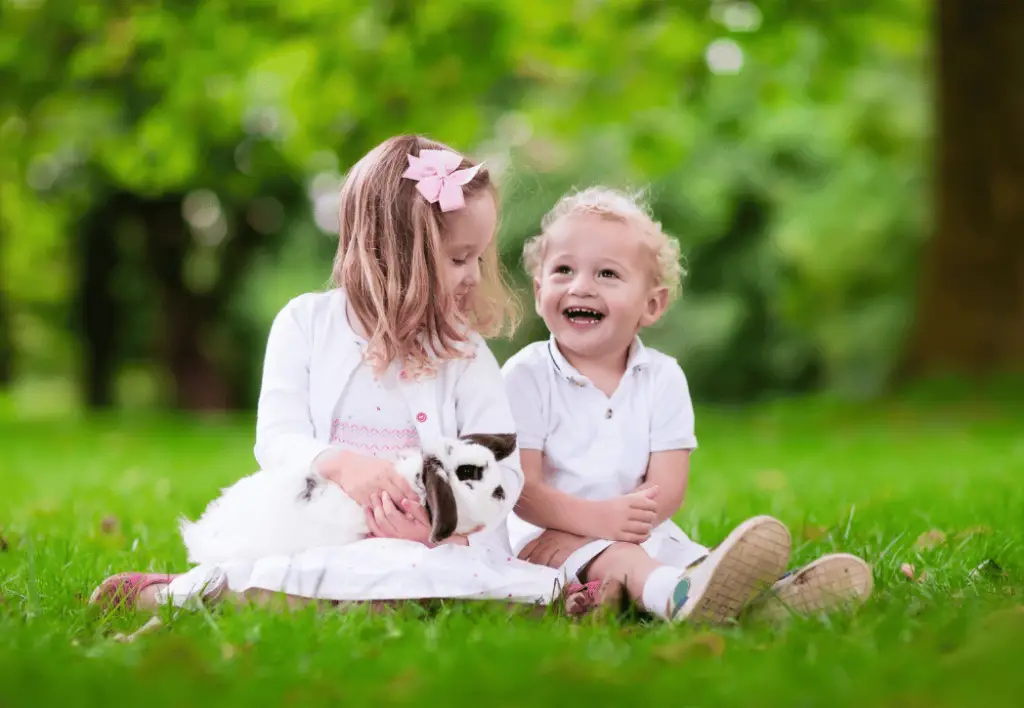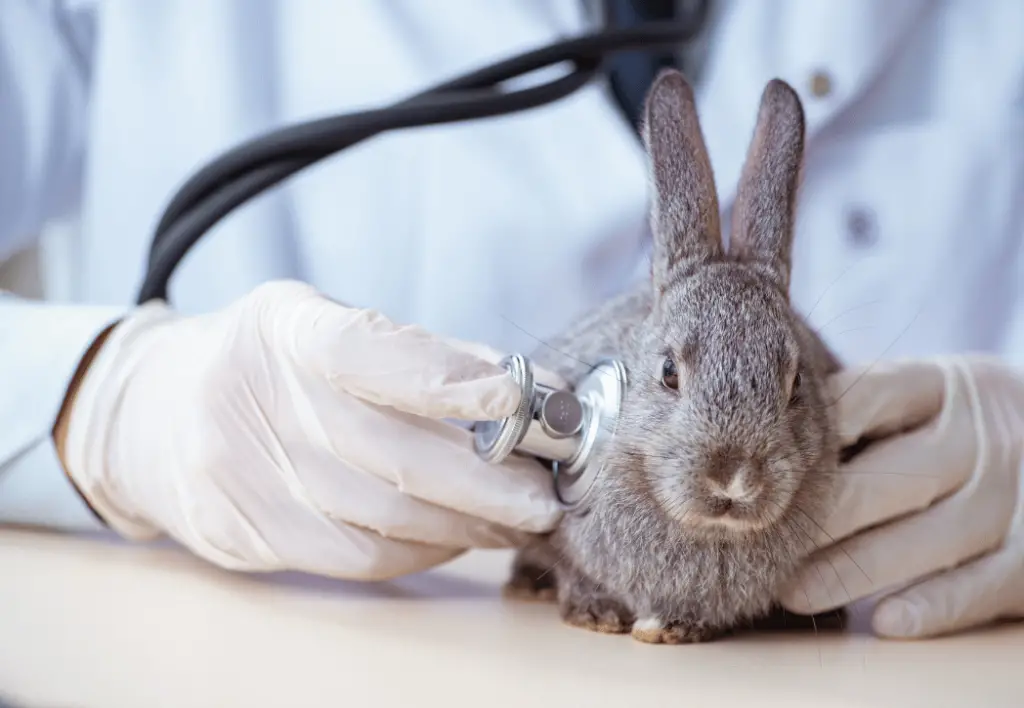Last Updated on July 21, 2023 by Emma Reynolds
Depression is not exclusive to humans; animals can also experience it. Rabbits, in particular, can become depressed if they are not given enough attention or if they are kept in a small, confined space. It is important to recognize the signs of a depressed rabbit and take action to cheer them up.
Some common signs of a depressed rabbit include lethargy, lack of appetite, and loss of interest in activities they once enjoyed. If you notice any of these signs in your pet rabbit, it is important to take steps to improve their mental health. There are several things you can do to cheer up a depressed rabbit, including providing them with more space to move around, toys to play with, and companionship.
Understanding Depression in Rabbits
Depression in rabbits is a serious issue that can affect their overall health and well-being. It is important to understand the causes and signs of depression in rabbits, as well as the potential health problems that may arise as a result.
Causes of Depression in Rabbits
Depression in rabbits can be caused by a variety of factors, including:
- Lack of social interaction: Rabbits are social animals and require daily interaction with their owners or other rabbits to maintain their mental health.
- Boredom: Rabbits need plenty of toys and activities to keep them mentally stimulated and prevent boredom.
- Lack of exercise: Rabbits need regular exercise to stay healthy and happy. Without it, they may become lethargic and depressed.
- Changes in environment: Rabbits can become stressed and depressed if they are suddenly moved to a new environment or if their living conditions change.
Signs of Depression in Rabbits
Signs of depression in rabbits can include:
- Lack of energy and curiosity: Depressed rabbits may spend most of their time lying in one spot and seem uninterested in their surroundings.
- Loss of appetite: Depressed rabbits may have little to no appetite.
- Lethargy: Depressed rabbits may be listless and inactive, showing little motivation to play.
- Hiding: Depressed rabbits may prefer to hide away from the world.
Health Problems and Depression in Rabbits
Depression in rabbits can lead to a variety of health problems, including:
- Gastrointestinal stasis: This is a serious condition that can occur when a rabbit’s digestive system slows down or stops working altogether. It can be caused by stress and depression.
- Dental problems: Depressed rabbits may neglect their dental hygiene, which can lead to dental problems like overgrown teeth.
- Obesity: Depressed rabbits may become overweight if they are not getting enough exercise and are overeating.
It is important to address depression in rabbits as soon as possible to prevent these health problems from occurring. If you suspect that your rabbit may be depressed, it is important to consult with a veterinarian to determine the best course of action.
Creating a Cheerful Environment

When a rabbit is feeling down, it’s important to create a cheerful environment to help lift their spirits. Here are some tips on how to provide a happy and comfortable living space for your furry friend.
Providing a Spacious Cage
Rabbits need plenty of space to move around and exercise, so it’s important to provide them with a spacious cage. A cage that is too small can make them feel trapped and stressed out. The minimum recommended size for a rabbit cage is four times the size of the rabbit, with enough room for them to stand up and stretch out comfortably. If you have a larger rabbit, consider getting a playpen to give them more room to run around.
Choosing the Right Bedding
The right bedding can make a big difference in your rabbit’s mood. Choose a soft and comfortable bedding material, such as hay or straw, to provide a cozy place for your rabbit to rest. Avoid using cedar or pine shavings, as they can be harmful to rabbits’ respiratory systems.
Offering Physical Stimulation
Physical stimulation is important for rabbits to stay healthy and happy. Provide your rabbit with plenty of toys to play with, such as balls, chew toys, and tunnels. You can also create an obstacle course for them to run through, or set up a play area with ramps and platforms for them to climb on.
Providing Mental Stimulation
Mental stimulation is just as important as physical stimulation for rabbits. Provide your rabbit with plenty of things to chew on, such as cardboard boxes or untreated wood. You can also hide treats around their cage for them to find, or create a foraging toy by hiding food inside a paper bag or cardboard tube.
By providing a spacious cage, choosing the right bedding, offering physical stimulation, and providing mental stimulation, you can create a cheerful environment for your depressed rabbit. Remember to also give them plenty of love and attention, as rabbits thrive on social interaction with their human companions.
Social Interaction and Companionship
The Importance of Social Interaction
Rabbits are social animals and require social interaction to be happy and healthy. Without socialization, rabbits can become lonely, anxious, and depressed. Social interaction is important for their mental and emotional well-being, as well as their physical health.
Companionship with Other Rabbits
One of the best ways to provide social interaction for your pet rabbit is to get them a companion. Rabbits are happiest when they have a friend to play with, groom, and cuddle with. When choosing a companion for your rabbit, it’s important to introduce them slowly and monitor their interactions to ensure they get along well.
If you have a male rabbit, it’s best to get them neutered before introducing them to a female rabbit to prevent unwanted litters. It’s also important to make sure the rabbits are of similar size and age, as well as have compatible personalities.
Companionship with Other Pets
If you don’t want to get another rabbit, you can provide social interaction for your rabbit by introducing them to other pets in a supervised and controlled environment. However, not all pets are compatible with rabbits, and some can be dangerous to them.
Dogs and cats can be trained to get along with rabbits, but it’s important to supervise their interactions closely and never leave them alone together. Birds, rodents, and reptiles should never be allowed to interact with rabbits as they can be dangerous predators.
Social interaction and companionship are essential for the well-being of pet rabbits. Getting them a companion or introducing them to other pets can provide them with the socialization they need to be happy and healthy.
Encouraging Appetite and Play
When a rabbit is feeling down, they may lose their appetite and interest in playtime. However, there are several ways you can help encourage your rabbit to eat and play.
Offering Treats
One way to encourage your rabbit to eat is by offering them treats. Treats can be a great way to entice your rabbit to eat, but it’s important to choose healthy options. Some good treat options include fresh fruits and vegetables like carrots, apples, and strawberries. You can also offer your rabbit small amounts of hay-based treats, but be sure to read the label and avoid treats with added sugars or artificial ingredients.
Providing Hay
Hay is an essential part of a rabbit’s diet, and providing fresh, high-quality hay can help encourage your rabbit to eat. Make sure your rabbit has access to hay at all times, and try offering different types of hay to see if your rabbit has a preference. Timothy hay and orchard grass are both good options.
Encouraging Play
Playing is important for a rabbit’s mental and physical health, and it can also help boost their appetite. Encourage your rabbit to play by providing them with toys and activities to keep them entertained. Some good options include tunnels, chew toys, and cardboard boxes. You can also play games with your rabbit, such as hiding treats for them to find or playing tug-of-war with a toy.
Encouraging your rabbit to eat and play can help improve their mood and overall well-being. By offering healthy treats, providing fresh hay, and encouraging playtime, you can help your rabbit feel happier and more energetic.
Seeking Veterinary Care

If your rabbit is exhibiting signs of depression, it is important to seek veterinary care. A veterinarian can help determine if there is an underlying health issue causing your rabbit’s depression and provide treatment options.
Recognizing When to Seek Veterinary Care
If your rabbit is showing signs of depression, such as loss of appetite, lethargy, and lack of interest in physical activity, it is important to seek veterinary care. These symptoms may be indicative of an underlying health issue that requires treatment.
Additionally, if your rabbit’s behavior changes suddenly or they begin exhibiting destructive behaviors, such as chewing on furniture or wires, it may be a sign that they are experiencing depression and should be evaluated by a veterinarian.
Working with a Veterinarian to Treat Depression
When seeking veterinary care for a depressed rabbit, it is important to work closely with your veterinarian to determine the best course of treatment. Your veterinarian may recommend a combination of medication, environmental changes, and behavioral therapy to help your rabbit overcome their depression.
It is important to follow your veterinarian’s instructions closely and monitor your rabbit’s progress. Additionally, it may be helpful to make changes to your rabbit’s environment, such as providing more mental stimulation and social interaction, to help improve their mood.
Remember that seeking veterinary care for a depressed rabbit is important for both their physical and emotional well-being. By working with a veterinarian, you can help identify and treat any underlying health issues and provide your rabbit with the care and support they need to overcome their depression.
Frequently Asked Questions
Emma is a young, enthusiastic veterinary assistant based in Portland, Oregon. She has a natural affinity for all things fluffy, with rabbits being her absolute favorite. She got her first rabbit, a Holland Lop named Pippin, at the age of 7 and has been head over heels for them ever since. Emma holds an Associate Degree in Veterinary Science from the Portland Community College and has been working in a small animal clinic for the past 2 years.
